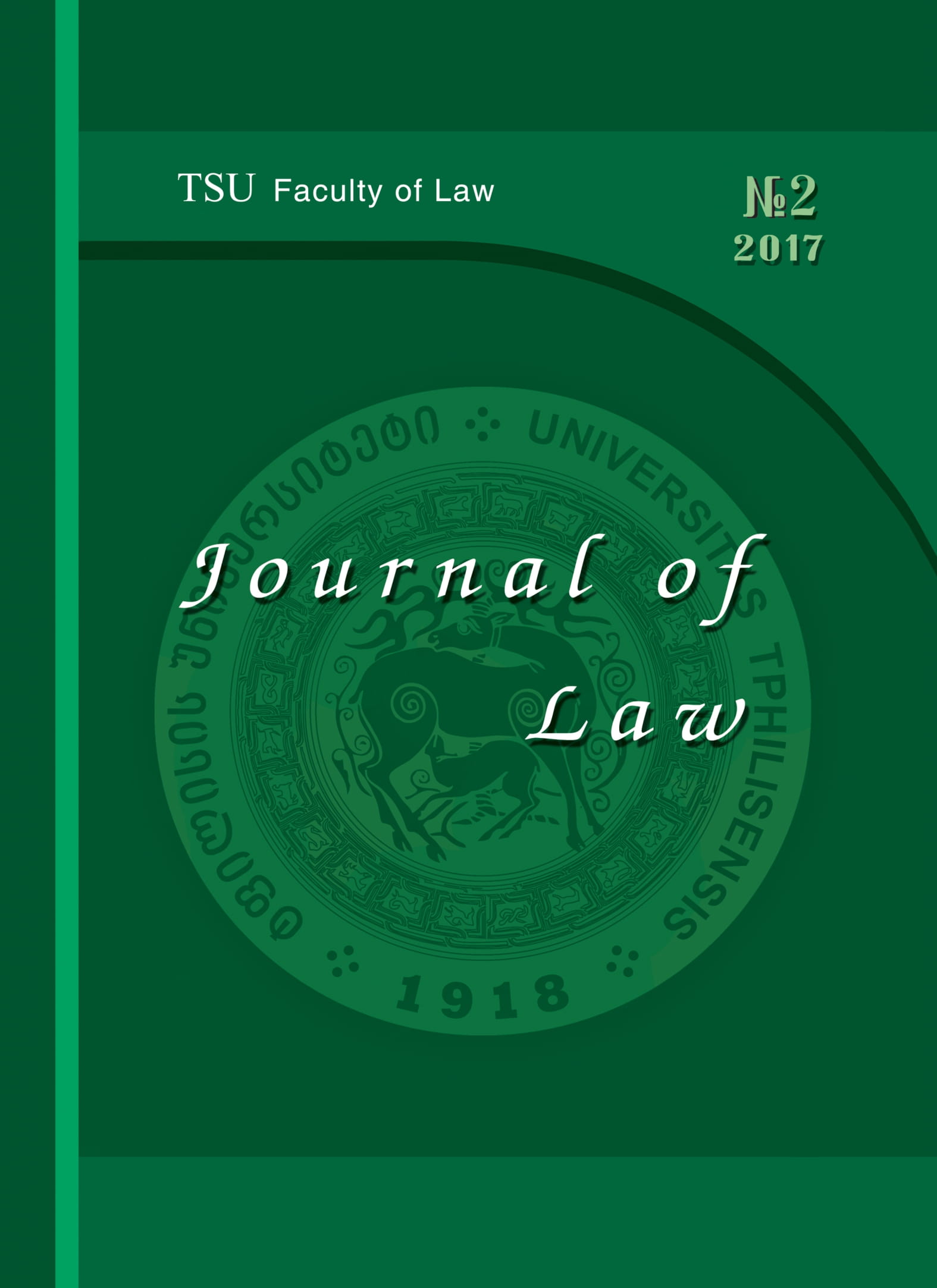The Importance of Regulating Contracts Concluded Through Electronic Means in Georgia’s Legislative Framework
Keywords:
electronic means, contract, parties, providing information, consumers’ rights, law applicable, directives, convention.Abstract
The respective article is related to the essence of the contracts concluded through electronic means, as well as parties and their rights and obligations. The article will also review those similarities and differences, which are common for the respective type of contracts. The definitions will also be provided from those international acts, which specifically relate to the meaning, essence, parties and other matters of the abovementioned contracts.
Determination of contract’s parties, as well as featuring and marking boundaries of their rights and obligations is an important aspect of any contract. Due to the fact that the parties do not meet in person upon concluding a contract through electronic means (distance contracts), there may arise certain type of obstacles. Hence, taking the respective circumstances into consideration, it is twice as important to determine the parties’ rights and obligations, whereas special emphasis shall be made on a supplier’s obligation to provide information to a consumer, hence form, amount and scope of such information is also important. The article will also touch upon a slightly specific, but very important aspect of such contract – time and location of conclusion and a law applicable for resolving any argument, which may arise.
References
Association Agreement between the European Union and the European Atomic Energy Community and their Member States, of the one part, and Georgia, of the other part 27/06/2014.
Civil Code of Georgia, 26/06/1997.
Civil Code of Germany, 18/08/1896.
Convention on the Law Applicable to Contractual Obligations, Rome 1980.
Convention of 30 June 2005 on Choice of Court Agreements.
Directive 97/7/EC of the European Parliament and of the Council of 20 May 1997 on the protection of consumers in respect of distance contracts.
Directive 2011/83/EU of the European Parliament and of the Council of 25 October 2011 on consumer rights, amending Council Directive 93/13/ECC and Directive 1999/44/EC of the European Parliament and of the Council and repealing Council Directive 85/577/ECC and Directive 97/7/EC of the European Parliament on the Council.
Directive 2002/65/EC of the European Parliament and of the Council of 23 September 2002 concerning the distance marketing of consumer financial services and amending Council Directive 90/619/EEC and Directives 97/7/EC and 98/27/EC.
Introductory act to the Civil Code of Germany.
UNCITRAL Model Law on Electronic Signatures.
UNCITRAL Model Law on Electronic Commerce.
United Nations Convention for the International Sale of Goods.
Bar Ch., Clive E., Schulte-Nölke H., Principles, Definitions and Model Rules of European Private Law – Study Group on a European Civil Code and the Research Group on EC private Law; Munich, 2009, 245, 347.
Behr V., Rome I Regulation A Mostly Unified Private International Law of Contractual Relationships Within Most of the European Union, Journal of Law and Commerce, Journal of Law and Commerce, Vol.29, May 2011, 240.
Kierkegaard M.S., E-Contract Formation: U.S. and EU Perspectives, Washington, 2007, 10.
Thurlow W., Electronic Contracts in the United States and the European Union: Varying Approaches to the Elimination of Paper and Pen, http://www.ejcl.org/53/art53-1.html.
Wang F.F., Internet Jurisdiction and Choice of Law, Cambridge, 2010, 8, 24-25, 100-101.
http://europa.eu/youreurope/citizens/consumers/shopping/pricing-payments/index_en.htm.
Downloads
Published
How to Cite
Issue
Section
License
Copyright (c) 2018 Journal of Law

This work is licensed under a Creative Commons Attribution-ShareAlike 4.0 International License.









